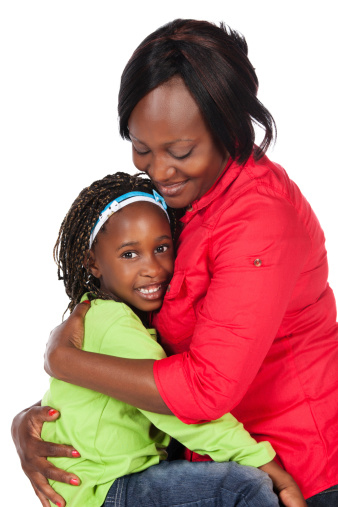
Before you leave for work or go to bed, remember to hug or kiss your children. Showing your little ones affection can go a long way in building their adult personalities.
Most of us probably remember, vividly so, growing up without ever hearing our parents utter the words, “I love you” or “I’m proud of you,” whenever we brought home an end-of-year school report with really good marks. And on any given day, there were never any heartfelt hugs or kisses given. We probably also thought it was normal for us children to fear parents or not to have a friendly relationship with them.
What’s Holding Parents Back?
The general assumption on the parents’ part is that working hard to provide a comfortable home, food, clothes and education are all adequate ways of showing their offspring some affection. And regrettably, in the humdrum of everyday life, providing for a child’s emotional wellbeing usually takes a backseat. But have you, the parent, ever stopped to wonder what value you’d be adding to your child’s life if you told them just how much they mean to you?
Who’s Really To Blame?
In the olden days, it was almost an unwritten rule in black culture for people never to reveal their emotions because, it was deemed the equivalent of showing weakness; and it’s for this reason that we seldom saw our parents kiss or hold hands in front of us. Ntshediseng agrees that culture can sometimes hold parents back from expressing positive emotions towards their children for fear of the child taking advantage of them. She also adds: “In practice, I’ve seen how parents, who are not always black, struggle to show affection towards their children. It’s usually a parent from a low-income household or previously disadvantaged background. In such families, finances and survival take precedence over spending time with children.”
The Dangers of Affection Lost
A child whose emotional and physical needs are attended to promptly, will trust their caregiver more and have no trouble approaching their caregiver for love and care in the future. On the other hand, a child who’s often left to cry unattended will be mistrusting of their caregiver. Bowlby explained that the kind of bond a child forms with their caregiver in the early days, will set the tone for how the child relates to people later in their life.
Follow these steps to be more affectionate to your children
Confront Your Own Ghosts First
This could be the anger or disappointment you still harbour towards your own parents for not showing you any love or acknowledging your achievements. It’s only in dealing with your own emotions that you’ll be able to open yourself up to being an affectionate parent.
Start Small
Simple gestures like kissing or hugging your children goodbye in the morning or even taking time out to play with them will never go unnoticed. Once the child has won your trust and affection, these will translate into them being comfortable enough to open up to you without you even asking.
Your Affection Matters The Most
People are generally scared to say, “I love you” for fear that the love will not be returned. But here’s a surprising fact about your children; they still love you even though you refused to buy them that latest play station game. And all they want is just to hear those three important words.
Quality Time
Spend time with your children, with the TV off. Ask them how their day was or play board games with them – anything that will help you get to know them better. Unfortunately, watching Generations with your children does not qualify as quality tie.




